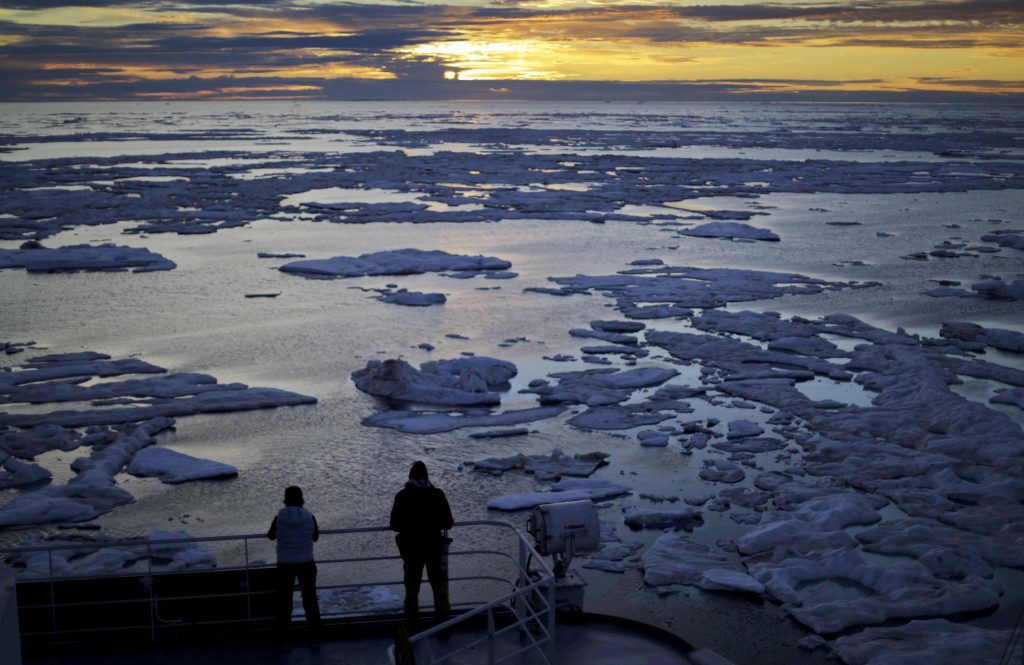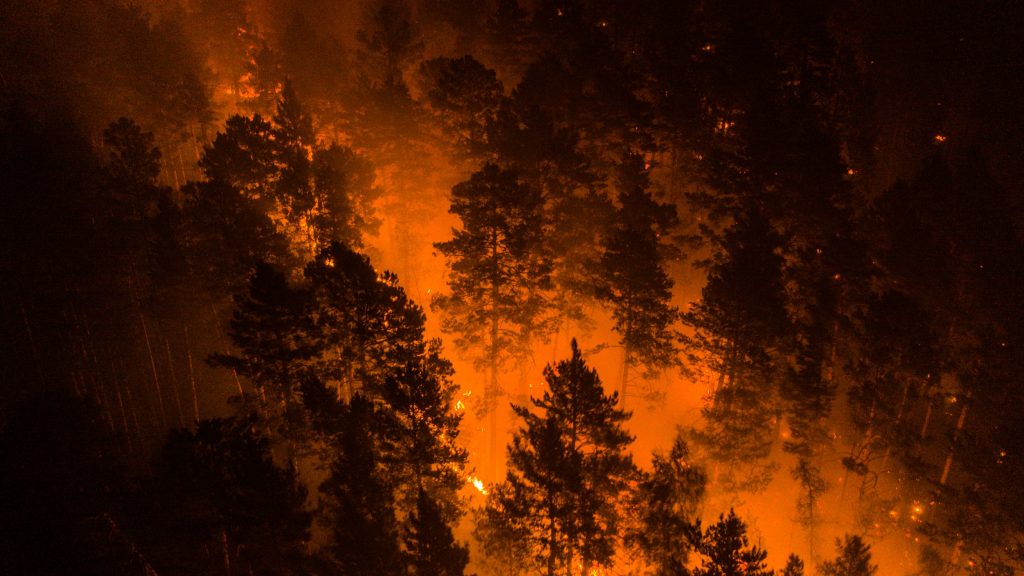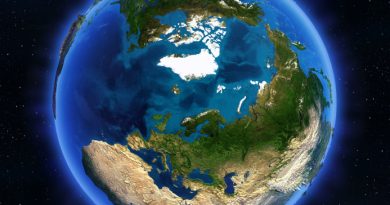2020 shaping up to be among warmest years on record says WMO

This year is shaping up to be among warmest years on record with extreme temperatures observed around the world, including the Arctic, says the World Meteorological Organization (WMO).
“2020 has, unfortunately, been yet another extraordinary year for our climate,” said WMO Secretary-General Petteri Taalas upon the release of the organization’s provisional State of the Global Climate 2020, on Wednesday.
“We saw new extreme temperatures on land, sea and especially in the Arctic, ” he said in a news release.
The provisional report outlines 2020 temperature extremes for the first 10 months of 2020 and describes them of some of the most extreme being found above the Arctic Circle.
“..the Arctic stands out as the region with the largest temperature deviations from the long-term average,” the provisional report says.
“Contrasting conditions of ice, heat and wildfires were seen in the eastern and western Arctic. A strongly positive phase of the Arctic Oscillation during winter 2019-20 set the scene early in the year, with higher than average temperatures across Europe and Asia and well-below average temperatures in Alaska, a pattern which persisted through much of the year.”
🌡️ 2020 set to be one of the 3 warmest years on record
The past decade was hottest in human history.
Ocean heat is at record levels, with widespread marine heatwaves
Arctic saw exceptional warmth@UN @antonioguterres: WMO #StateofClimate report shows urgency of #ClimateAction pic.twitter.com/LHr3TkyieR— World Meteorological Organization (@WMO) December 2, 2020
Siberian extremes
Among some of the temperature extremes this year was a record-breaking 38 degree C temperature reported in the Russian Arctic earlier this month. The reading was reported on June 20 in the Russian town of Verkhoyansk, located above the Arctic Circle in the Republic of Sakha (Yakutia) in the eastern Siberian region of Russia.
The region also experienced temperature anomalies of more than three degrees from January to October while in some of the central coastal parts of Siberia they were more than 5 C above average.
“Sea ice in the Laptev Sea, offshore from the area of highest temperature anomalies on land, was unusually low through the summer and autumn,” the report said. “Indeed, sea ice extent was particularly low along the Siberian coastline, with the Northern Sea Route ice-free or close to ice free from July to October.”

Meanwhile, some other Arctic regions, including Greenland and Alaska, saw close-to or below-average temperatures, with sea ice conditions in Canada, also close to average.
” … the 2019-20 surface mass balance for Greenland was close to the 40-year average,” the report said.
“Nevertheless, the decline of the Greenland ice sheet continued during the 2019-20 season, but the loss was below the typical amounts seen during the last decade. Sea ice conditions along the Canadian archipelago were close to average at the September minimum and the western passage remained closed.”
But globally sea ice loss continued to raise alarms.
“Arctic sea-ice reached its annual minimum in September, as the second lowest in the 42-year-old satellite record,” the report said. “Arctic sea ice for July and October 2020 was the lowest on record.”
Wildfires
Wildfires have also been up in the first ten months of 2020, but with huge regional differences.
While Yukon, the Northwest Territories, and Alaska experienced wildfire activity far below the average, the drier than average weather in Siberia led to record burns.

“Regional reports for eastern Siberia indicate that the forest fire season started earlier than average, and for some regions ended later, resulting in long-term damage to local ecosystems,” the report said.
“The region north of the Arctic circle saw the most active wildfire season in an 18-year data record, as estimated in terms of fire radiative power and CO2 emissions released from fires.”
Greenhouse gases rise despite pandemic lockdowns
Although there was some speculation in the first part of the year that the pandemic-related economic slowdown might lower CO2 emissions, the report says that has turned out not to be the case.
“Despite the COVID-19 lockdown, atmospheric concentrations of greenhouse gases continued to rise, committing the planet to further warming for many generations to come because of the long lifetime of CO2 in the atmosphere,” says the report.
#StateofClimate report: #climatechange has not stopped for #COVID19
📈temperatures and sea level rise
⬇️ice and glaciers
🌊heat and acidification
🌀Extreme weather hit food security and health, triggered displacement
Thanks to all partners for input.https://t.co/wVsqHe2YfF pic.twitter.com/ZRfbdxBB5j— World Meteorological Organization (@WMO) December 2, 2020
Taalas said the recent data shows the importance of the world community’s sticking to their Paris climate accord commitments, to keep global temperature increase to less than 2 C above pre-industrial levels.
“The average global temperature in 2020 is set to be about 1.2 °C above the pre-industrial (1850-1900) level,” Taalas said. “There is at least a one in five chance of it temporarily exceeding 1.5 °C by 2024.
“This year is the fifth anniversary of the Paris Agreement on Climate Change. We welcome all the recent commitments by governments to reduce greenhouse gas emissions because we are currently not on track and more efforts are needed.”
Final report out next year
The provisional report looked at data from the first ten months of 2020. It’s based on information from experts and international organizations.
The final 2020 report will be published in March 2021.
Write to Eilis Quinn at eilis.quinn(at)cbc.ca
Related stories around the North:
Canada: Climate change creating vast new glacial lakes, with risk of ‘gargantuan’ floods, researcher says, The Canadian Press
Greenland: Rise in sea level from ice melt in Greenland and Antarctica match worst-case scenario: study, CBC News
Russia: Northern climate change will cost country €99 billion says Russia’s Minister of the Arctic, Eye on the Arctic
Sweden: Reducing emissions could create up to 3,000 new jobs in Arctic Sweden says mining group, Eye on the Arctic
United States: Indigenous wildfire knowledge to be key part of new Arctic Council project, Eye on the Arctic




thanks for this is infourmation